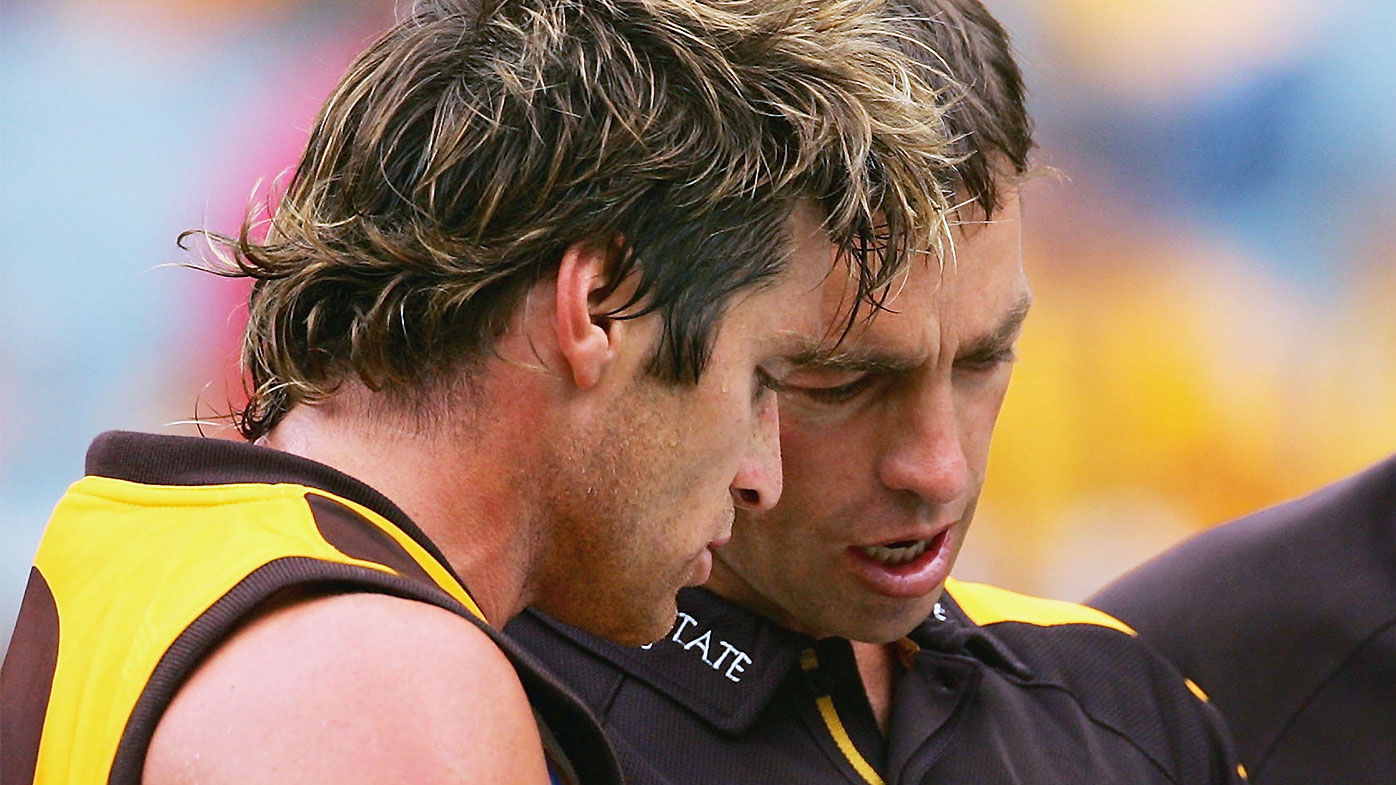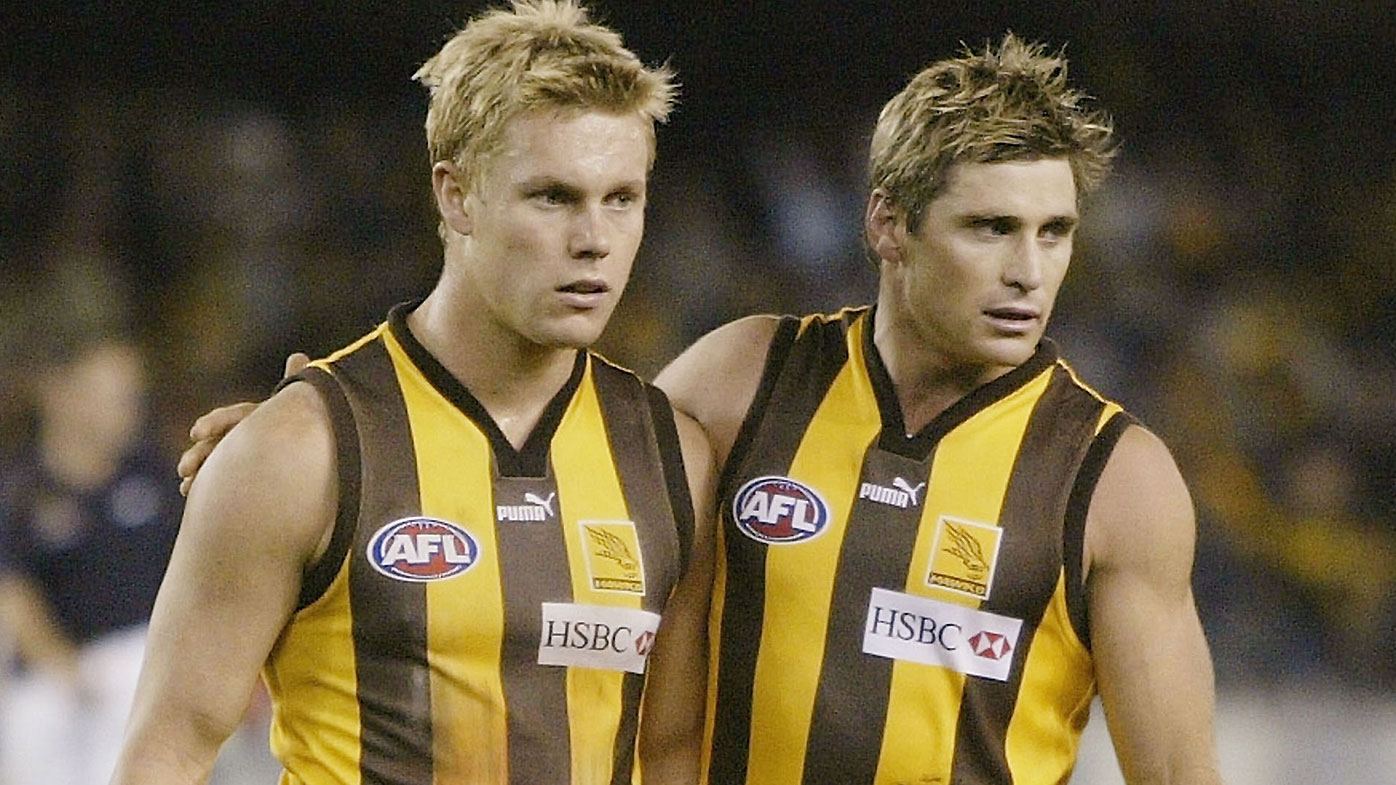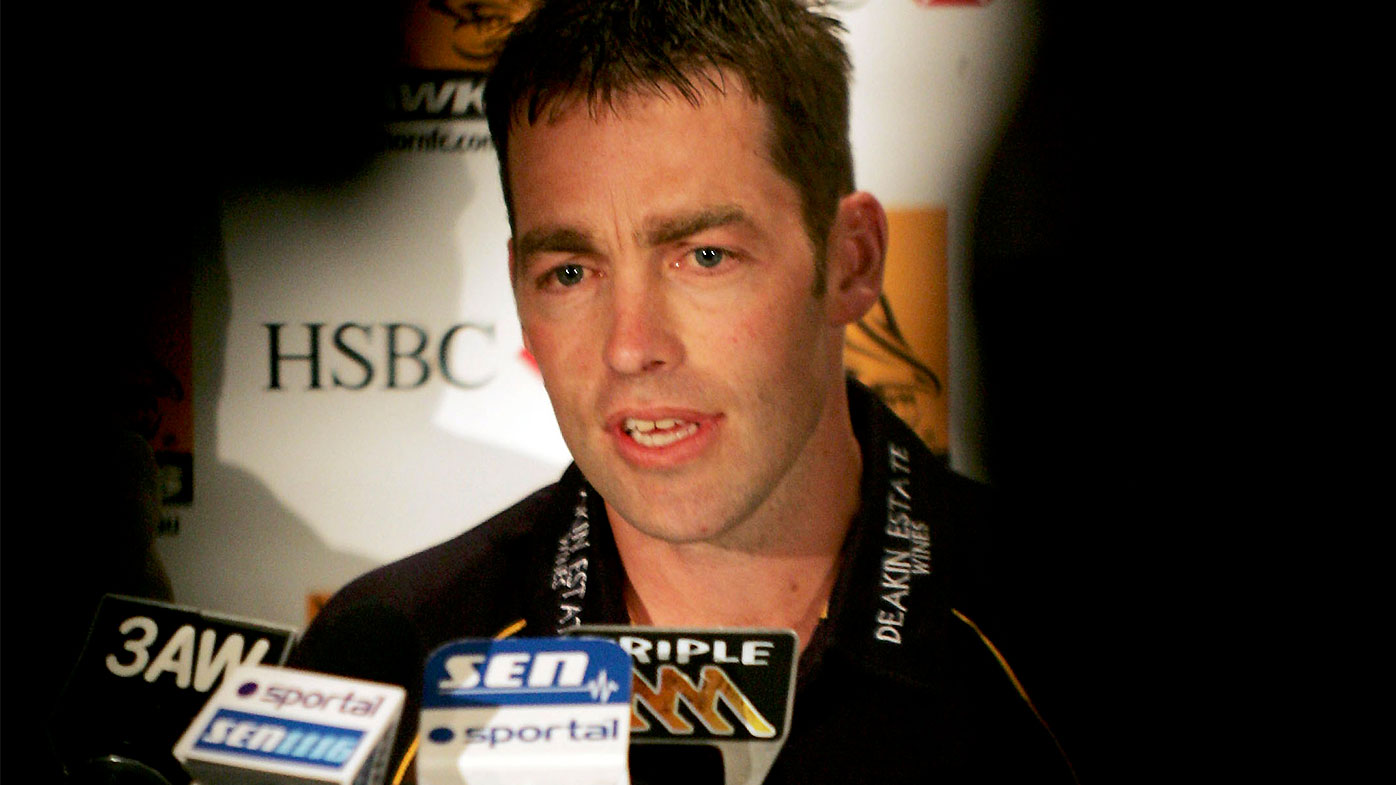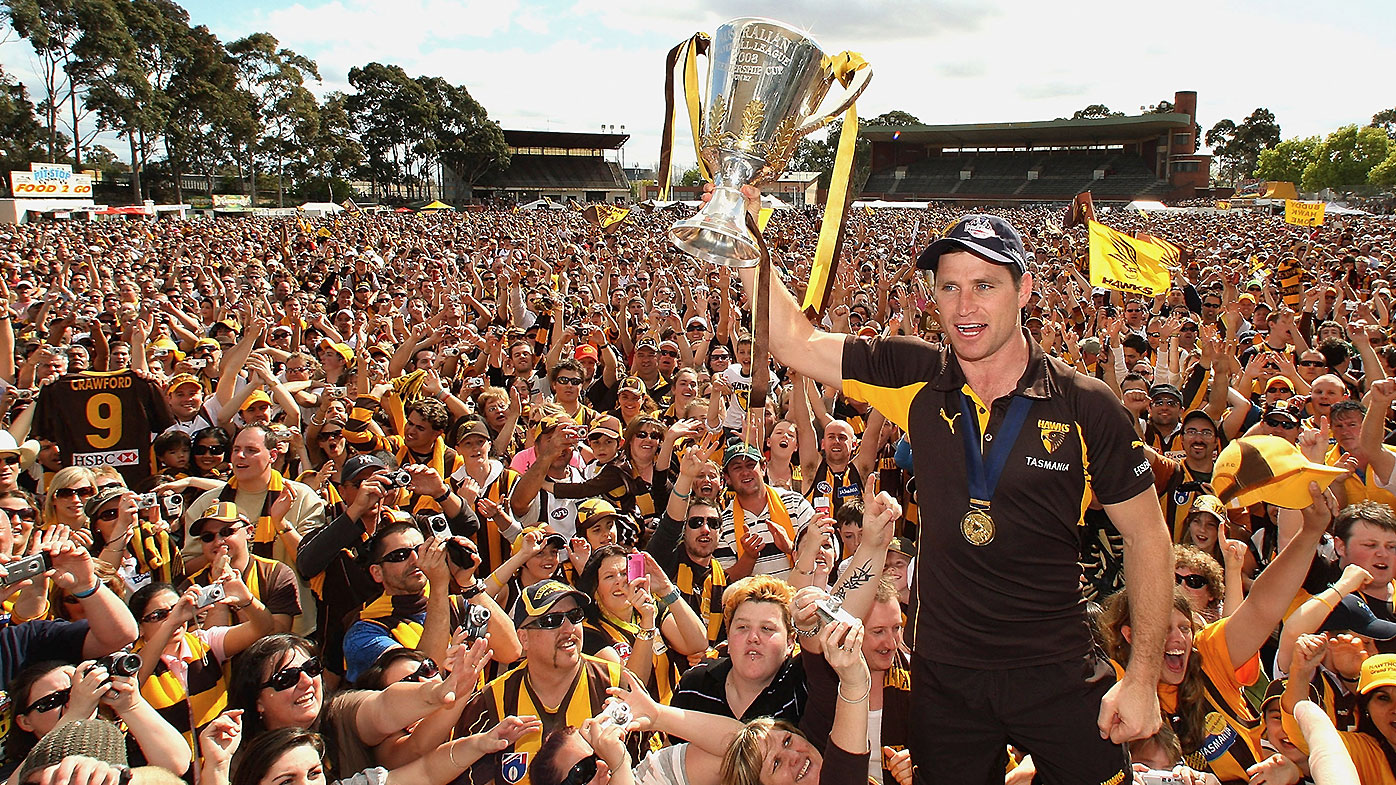When the little-known Alastair Clarkson took over as Hawthorn coach at the end of a disastrous 2004 season, he arrived at a struggling club that was a shadow of the powerhouse it once was.
Before Clarkson turned Hawthorn back into the winning machine it eventually became in the early 2010s, Hawthorn had become the "easybeats" of the competition, a team rivals used to fatten their respective percentages throughout the year.
MORE: Hawthorn announces Clarkson-Mitchell succession plan
Amid the rubble Clarkson inherited was one shining beacon of light: star midfielder Shane Crawford, who had won the Brownlow Medal five seasons earlier.
Hindsight shows that Crawford was the bridge between Hawthorn's two eras of dominance, arriving at the club on the back of five premierships in eight years in the 80s and early 90s, before leaving with the club's first flag in 17 years in 2008.
Crawford's eventual fairytale ending appeared to be well out of reach when Clarkson arrived at Glenferrie Oval at the end of 2004. The Brownlow Medallist was nursing a broken arm but also a broken heart, fearing that he might never see success at his beloved club.
While Clarkson jettisoned a number of Crawford's old teammates to instill a youth policy, he wanted the four-time All-Australian around, selling him on leading the next generation of stars on the list.
"My very first meeting was sitting down in his office and we had an honest conversation," Crawford told Wide World of Sports.
"I had lost my love for the football club because we had really struggled and lost a bit of direction, and I thought that maybe I needed to finish up at that club and move on to try and enjoy the last four of five years of my career.
"When you're captain, you find out too much. You're a part of lots of different meetings, sometimes board meetings, and you're a part of conversations about certain players and you just find out too much and it's not nice. I felt that I probably needed a new start.
"I had a conversation with him and he said, 'I'm going to play these young kids, we're going to draft young and I'm going to move on some of your friends who have been really good servants, but we'll try and get them to other clubs. I know they've got a couple more years to go, but I won't play them because I've got to play these kids. It'd be great if you hung around and helped and showed them how to train properly'.
"That's what really made me question whether I should go because I was like, if I'm not going to have success as a team and winning a premiership, maybe I can get great satisfaction out of knowing that I've helped in a small way with some of the players coming through if they're able to have future success.
"That was something that he really planted in my head and obviously it was probably one of the main reasons I stayed."
After a pre-season premiership declaration in 2004 from then-coach Peter Schwab, a three-time premiership winner with the club in the 1980s, the Hawks slumped to bottom of the ladder by Round 16. Schwab had to bring forward his planned resignation mid-season due to a run of embarrassingly lopsided results.
Schwab was replaced by interim coach Donald McDonald, before Clarkson, who had been the midfield coach of that season's premiership-winner Port Adelaide, became the club's stunning new appointment.
Crawford recalls Clarkson stressing the basics early, setting a solid fundamental base that allowed the club to build itself back into a powerhouse.
"We didn't turn it around in the first couple of years, we were the easybeats," he said.
"We went back to the basics of learning and understanding the game. It was pretty much as basic as you could get.
"He was honest, but he was ruthless with who was going to stay on the list and how he was going to develop the team; which I didn't like, because he was obviously getting rid of some of my long-time teammates, but at least I understood what he was trying to do.
"He wanted to bring in young kids and they were not ready to play AFL football, but they've got to learn and the best way for them to learn was to play on good players and against good teams and understand what's required and hopefully that could fast-track them.
"Hawthorn had never done that in the past, we had always made players earn their stripes, whereas he was ahead of the game.
"He's a fun teacher but he's also got that headmaster focus about him at times. All the players who ever played under him always knew what was expected, not only from your role but everyone else's role.
"He was a real teacher of why it was so important to understand exactly what everyone needs to do."
Among the young kids Crawford was tasked with mentoring was the man who will be Clarkson's successor as Hawthorn coach: Sam Mitchell, someone who Crawford calls "one of the smartest footballers I ever played with".
"He had to do it hard. He kept getting the football and he kept playing well all the time but recruiters pigeon-holed him," Crawford said of Mitchell, who was not a high draft pick like Luke Hodge, Lance Franklin, Jarryd Roughead or Jordan Lewis.
"I had a lot to do with Sam, especially early in his career, because he was someone who was pigeon-holed and told that he wasn't fast enough or his endurance wasn't good enough, but he worked harder than anyone."
With Hawthorn's coaching succession plan involving two men Crawford shared vast amounts of time with in the change rooms, the Hawks legend is sure it'll be a success.
"For him to have his football career is incredible," he said of Mitchell.
"If he applies his coaching role like he did with his footy, he's going to be a great success."




Leave a Reply
You must be logged in to post a comment.